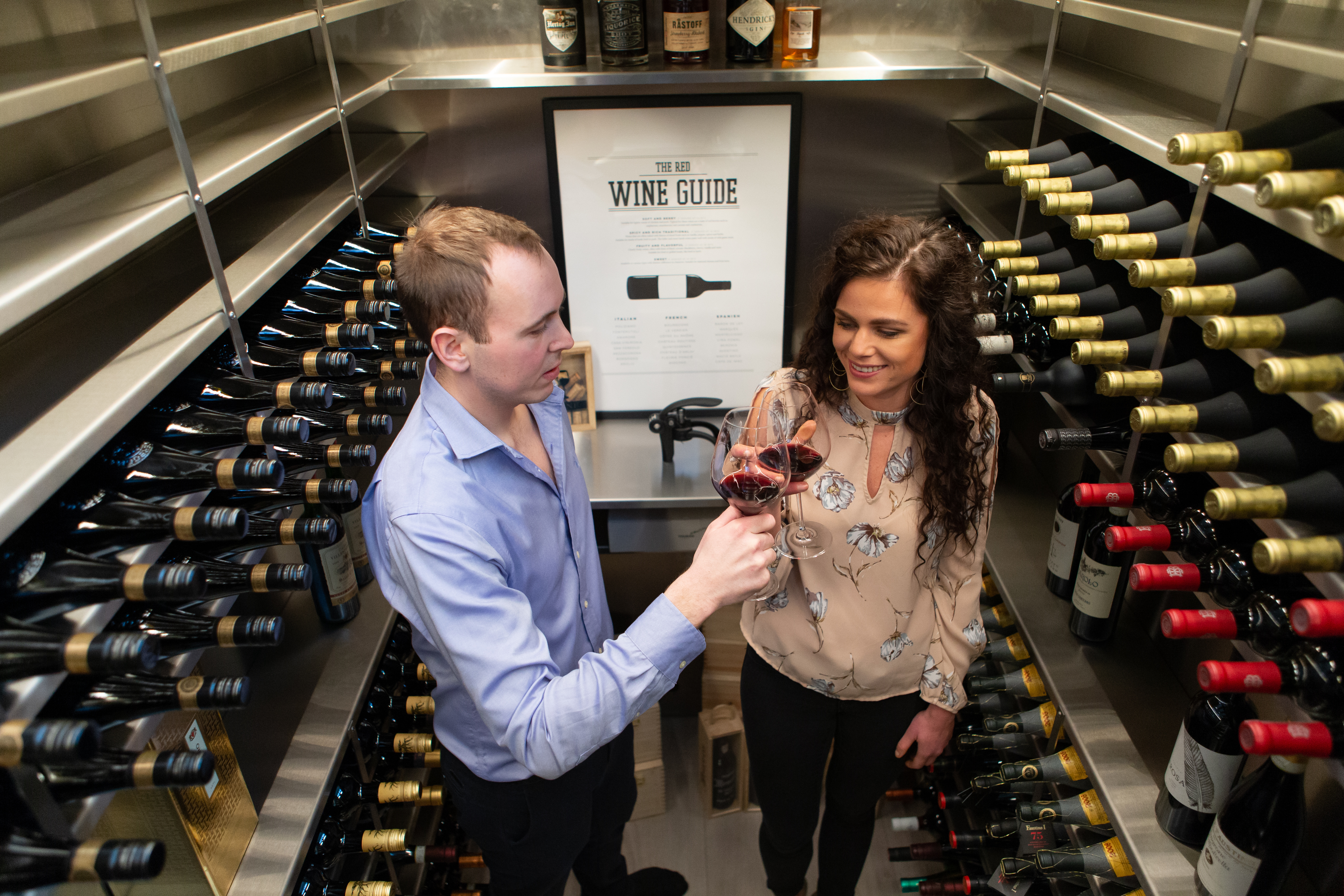
Humidity in a Wine Cellar
Humidity is a critical factor for safe and long-term wine storage. Air that's too dry can dry out corks – while excess humidity may lead to mould and damage. In this guide, you’ll learn how to create stable conditions that preserve your wine’s quality and value over time.
How humidity affects wine storage
Humidity is a key factor in proper wine storage. If it’s too low, corks can dry out, allowing air to enter and spoil the wine. Too much humidity, on the other hand, can cause mould, damaged labels, and unpleasant odours.
To protect both wine and corks, keep humidity between 50–80%. This prevents oxidation, preserves label quality, and helps the wine age as intended. Especially for long-term storage, stable humidity ensures the wine retains its aroma and character over time.
The humidity in our wine cellars
The humidity in a wine cellar is largely influenced by its surroundings, especially the soil and ground conditions. Cellars built below ground or in naturally moist environments often maintain ideal humidity for wine storage. In contrast, dry soil or poor insulation can cause low humidity, risking wine quality.
Because natural conditions vary, it's important to monitor the cellar's environment. If your wine cellar is in a dry area, additional moisture control may be needed to ensure stable and suitable storage conditions.

Common mistakes people make with humidity in the wine cellar
- Too much humidity: Over 80% can cause mold, odors, and label damage. Use ventilation or a dehumidifier.
- Too little humidity: Under 50% dries out corks and spoils wine. Aim for 60–70% using a humidifier if needed.
- Poor ventilation: Leads to moisture buildup and mold. Ensure good airflow.
- Wrong placement: Avoid heat and sunlight. Place the cellar in a stable, cool environment.
Other factors that affect the quality of wine
To store your wine properly, it's important to consider temperature, light, vibrations, and placement.
1. Temperature
Keep a consistent 10–15°C to protect the wine and cork. Use a wine fridge or cellar with temperature control.
2. Light
Avoid direct sunlight and UV rays, which can alter taste and aroma. Use UV-filtering glass or store in a dark space.
3. Vibrations
Minimize vibrations to allow the wine to mature naturally. Ensure shelves are stable and placed in a quiet location.
4. Placement
Choose a well-ventilated, temperature-stable area away from heat sources.
Delicate or rare wines may require more specific conditions. For long-term storage, consider seeking expert advice to ensure your collection stays in top condition.

Contact us for assistance
Are you unsure about which wine cellar is best for your needs, or do you have questions about how the wine cellar can optimize storage conditions for your wines? Don't hesitate to contact us! Our experienced team is ready to provide you with advice and guidance, so you can make the best choice for both wine storage and decoration. We are happy to assist you with anything we can.
